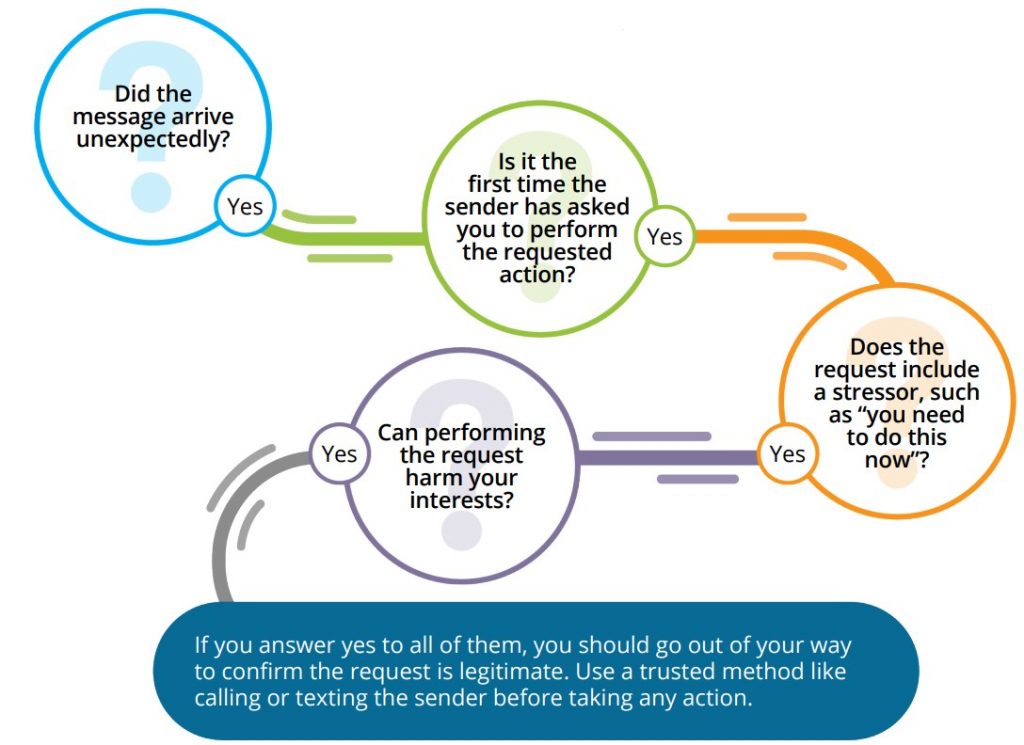Social engineering is a scam where a cybercriminal attempts to trick someone into taking an action against their own best interests. Usually, the action results in the victim providing confidential information (like their login information) or installing malware on their computer. Most social engineering attacks have four common traits, which signal a far higher likelihood of a scam if all are present.

Long Image Description:
Did the message arrive unexpectedly? Yes. Is it the first time the sender has asked you to perform the requested action? Yes. Does the request include a stressor, such as “You need to do this now”? Yes. Can performing the request harm your interest? Yes. If you answer yes to all of them, you should go out of your way to confirm the request is legitimate. Use a trusted method like calling or texting the sender before taking any action.
Not every message with these four traits is absolutely a social engineering scam. Our email inboxes, voicemail and postal mailboxes are full of unexpected requests; that is life. But when these four traits are present, stop, look, and think before you act!